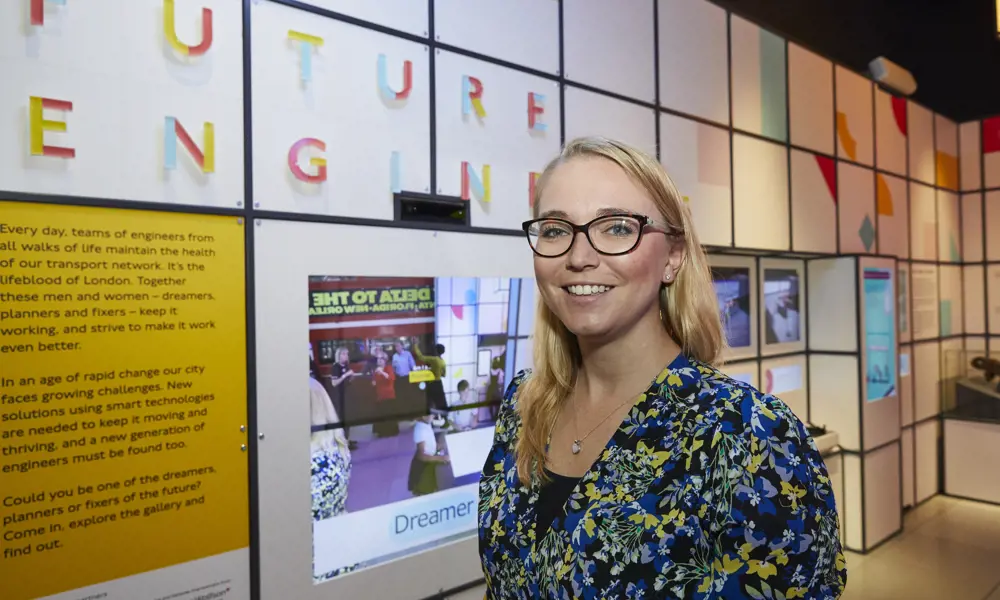
Q&A: Zoe Dobell
Why did you first become interested in engineering?
I have a few theories! When I was about five, I visited a railway depot with my dad who’s an engineer. Exposure to that world from an early age made me aware that engineering existed and that it was interesting. I was also always involved in DIY around the house, so had an interest in ‘fixing’ things from a young age. My mum pushed me to join the Beavers as a child because she thought being active and outdoors was important. I was the only girl in the group, but I was always encouraged to do what I wanted.
How did you get to where you are now?
I was good at maths and science at school and my teachers always encouraged me, suggesting the subjects when I was choosing my A levels. I was lucky to be nurtured by great teachers and parents. I always knew I wanted to go to university as I’ve always quite liked academia, so I took A levels in the subjects I enjoyed: science, maths, and design and technology.
One of my teachers suggested that engineering was a good combination of all three subjects, which led to me studying materials science and engineering at Imperial College London. During my degree, I did a couple of summer placements: one with Angel Trains and one at Bombardier Transportation. These both taught me how to use my engineering knowledge to solve practical problems and taught me a lot about the challenges of railways. It was these challenges and the way they provide a service that excites me about railways. The practical experience really helped when I was choosing industries I wanted to apply for jobs in, and proved very helpful in the application and interview process for graduate roles.
I specifically chose railways because they’re public transport rather than luxurious travel such as cruise ships or aeroplanes, and metros in particular help lots of people!
I chose to work in transport because it helps people; it’s good for society. I specifically chose railways because they’re public transport rather than luxurious travel such as cruise ships or aeroplanes, and metros in particular help lots of people! I enjoy the challenge of working within constraints, such as being able to run a certain number of trains during rush hour. When I graduated, I joined TfL’s graduate training scheme as a mechanical engineer, which gave me the opportunity to work all over the business. This gave me the knowledge that I needed to decide to work within rolling stock (train) projects and the Central Line Improvement Project.
What is your favourite thing about being an engineer?
I like the variety that being an engineer offers. For example, the London Transport Museum’s Future Engineers exhibition asks visitors whether they are a fixer, a dreamer or a planner – I believe that as an engineer you get to be all three! There are days where you have to solve and fix a problem, days when you’re thinking about the future and what could be done in 10 years’ time, and other times when you’re planning how to implement that dream. The variety means that I’m never bored and I’m constantly motivated to do something.
I also really enjoy finding solutions around the necessary constraints of jobs. Time and money are always constraints, but there are also technical constraints such as finding space for all the necessary equipment and the train still needing to be a certain size to fit through the tunnel. It’s really satisfying when you find the solution.
the London Transport Museum’s Future Engineers exhibition asks visitors whether they are a fixer, a dreamer or a planner – I believe that as an engineer you get to be all three!
What does a typical day at work involve for you?
My days are very varied. I work as part of a large team, and as a systems engineer I work closely with project engineers and various specialist engineers, as well as project managers and sponsors of the project.
At the moment, I’m office-based and we’re doing the design work for CLIP. I have meetings with suppliers, often via Skype because they’re located around the world. Some days I take suppliers to visit the depot and show them where their products might fit. I also go on trips to places such as Sweden and Finland to talk to suppliers about their designs.
It’s my job to ensure that all the systems we choose can function and communicate with each other and will work as a group to deliver the required improvements. In a few months or so we’ll be prototyping and fitting the products to a train, so then I’ll be spending all my time at the depot, fixing the products and solving problems. It varies not only day to day, but year to year.
Quick-fire facts
Age:
31
Qualifications:
CEng MIMechE and MEng (Hons) Materials Science and Engineering, Imperial College London.
Biggest engineering inspiration:
The natural talent and ideas of kids at STEM events.
Most-used technology:
3D printing of parts – to aid space proofing and ergonomic assessments.
Three words that describe you:
(unless someone knows better) creative, direct, logical.
What would be your advice to young people looking to pursue a career in engineering?
Keep your options and your eyes open! Look for the things that excite you and try to appreciate that everything around you has been engineered by someone. Look at problems that need to be solved: if you found something difficult to use, think about how you could improve it. James Dyson had problems with his vacuum cleaner, so he engineered a better one.
I would also emphasise the importance of studying science and maths throughout school, regardless of whether you choose to become an engineer through an apprenticeship or a graduate scheme route. Design and technology will also give you a great basis for engineering.
What’s next for you?
The beauty of engineering is that opportunities come around all the time, but because there’s so much variety in individual jobs, you want to deliver the thing you set out to deliver – while continuing to learn and develop. In the future, I can imagine myself going into the management side of engineering – but we will see.
***
This article has been adapted from "Q&A: Zoe Dobell Systems Engineer", which originally appeared in the print edition of Ingenia 79 (June 2019).
Keep up-to-date with Ingenia for free
SubscribeRelated content
Electricals & electronics
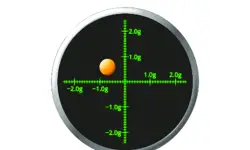
Accelerometers
Used in earthquake measurements, laptops, planes and even in stargazing apps, today’s accelerometers are much smaller than when they were first developed in 1927. Find out how they detect movement and vibration.
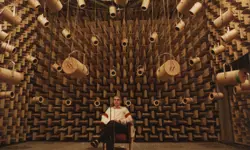
How to maximise loudspeaker quality
Ingenia asked Dr Jack Oclee-Brown, Head of Acoustics at KEF Audio, to outline the considerations that audio engineers need to make when developing high-quality speakers.
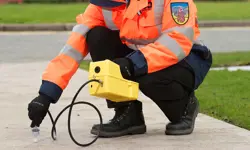
Cable fault locator
The winner of the Institute of Engineering and Technology’s 2014 Innovation Award was EA Technology’s CableSnifferTM, which uses a probe and chemical sensing technology to identify faults, saving energy companies millions of pounds each year.
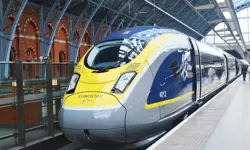
High speed evolution
In December 2010, Eurostar International Ltd awarded a contract for 10 new high speed trains to Siemens. The company has used a system developed over decades to maximise the performance and passenger-carrying ability of its 320km/h trains.
Other content from Ingenia
Quick read

- Environment & sustainability
- Opinion
A young engineer’s perspective on the good, the bad and the ugly of COP27

- Environment & sustainability
- Issue 95
How do we pay for net zero technologies?
Quick read

- Transport
- Mechanical
- How I got here
Electrifying trains and STEMAZING outreach

- Civil & structural
- Environment & sustainability
- Issue 95